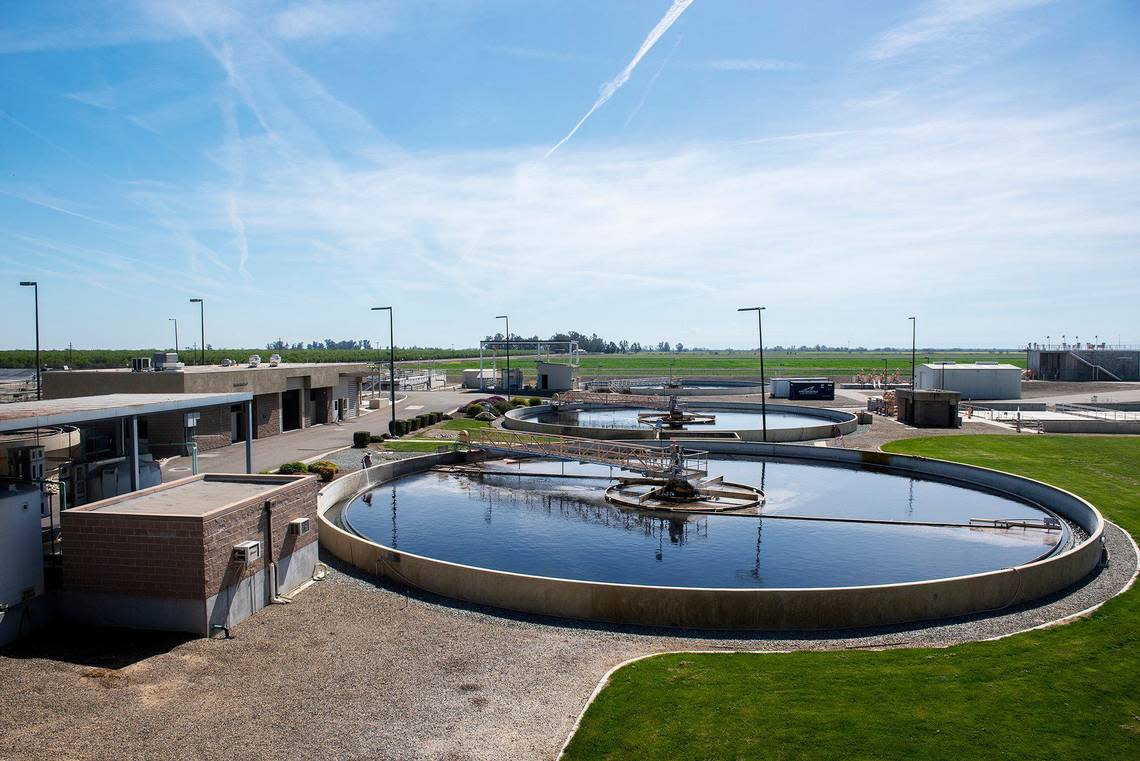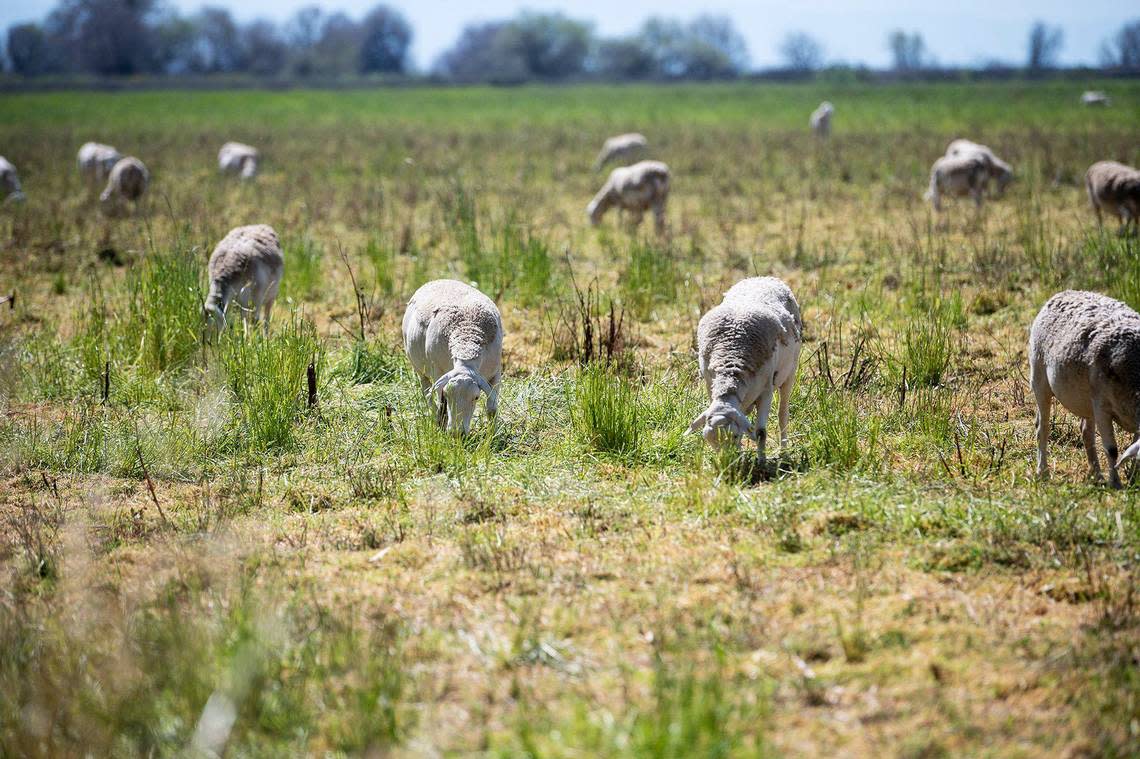Sheep control plant and weed growth at Merced wastewater treatment plant. Why it’s important
Inside Look is a Merced Sun-Star series where we take readers behind the scenes at restaurants, new businesses, local landmarks and news stories.
More than 900 sheep are being used to graze on the land and control plant and weed growth over about 80 acres in Merced.
According to City of Merced Wastewater Treatment Plant Operations Supervisor Charles Slagter, this is the third year the city has used sheep for selective grazing at its wastewater treatment plant as a form of vegetation control. By having the sheep graze on plants such as alfalfa and problem weeds, the city avoids the use of costly and harmful herbicides to keep the vegetation under control.
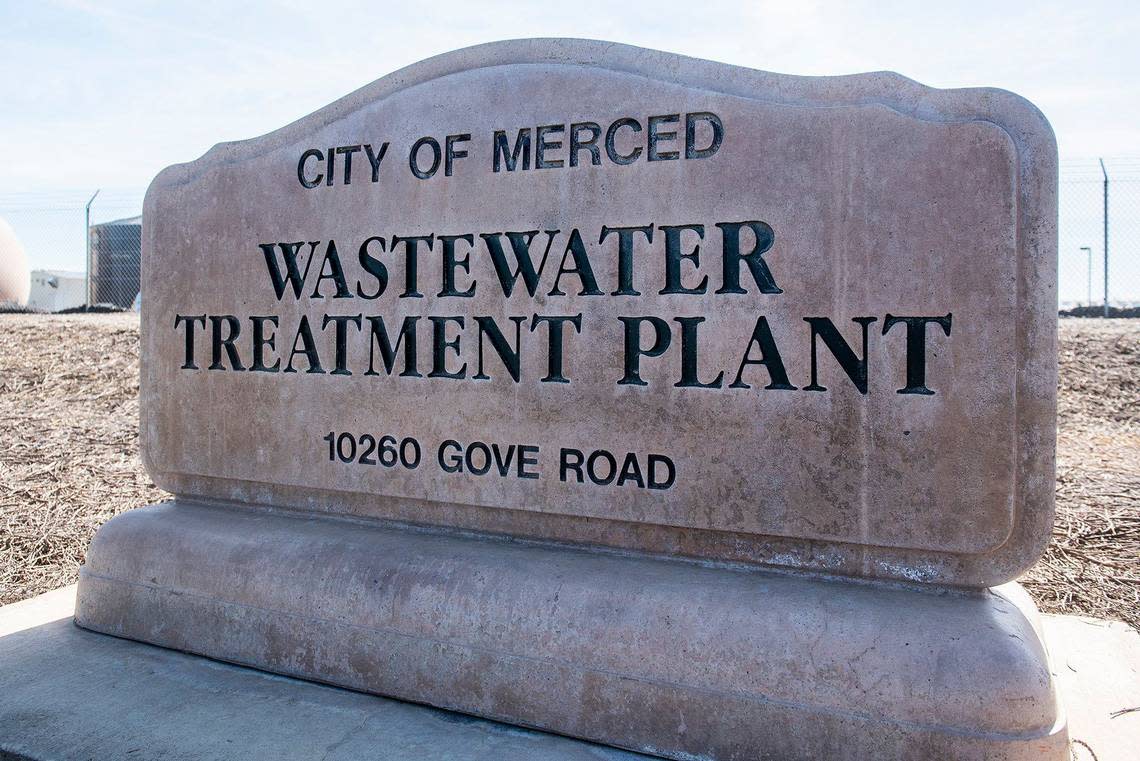
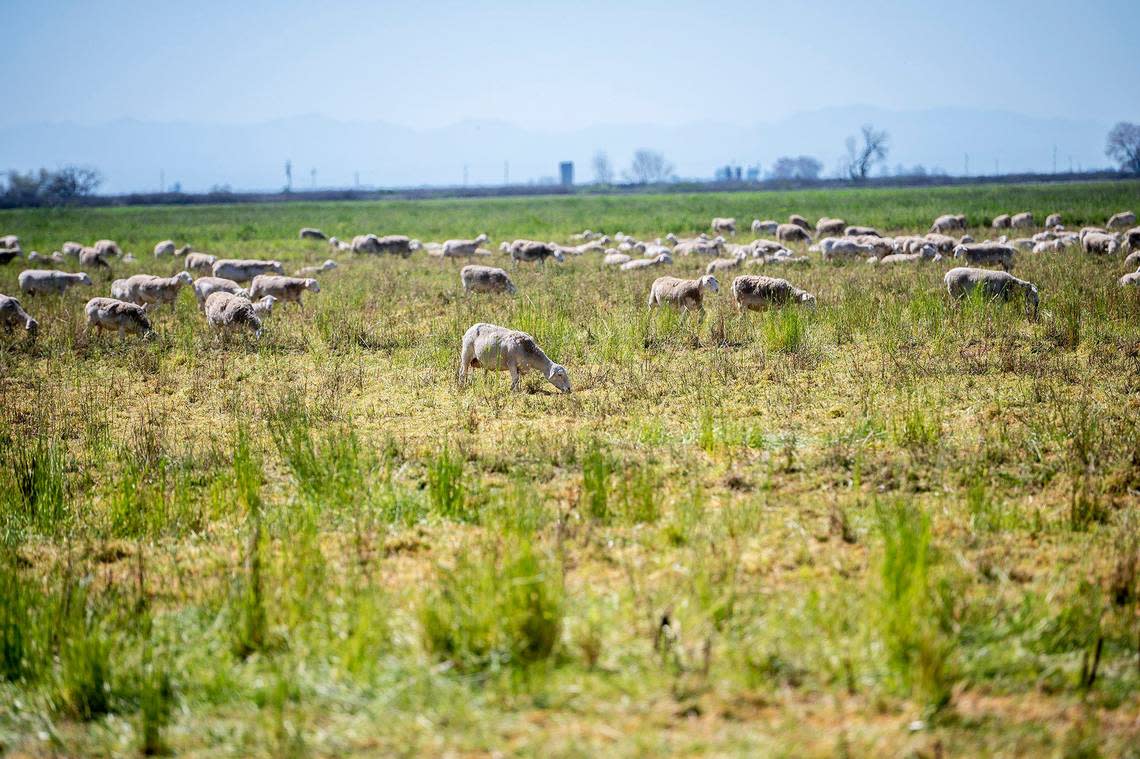
Processing about 8.5 million gallons of domestic sewage a day, the wastewater treatment plant then distributes the tertiary treated and recycled water over its 700-acre land application farm, a biosolids and water recycling facility.
As the sheep graze on the land, their waste product serves to fertilize the field, providing a free fertilizer application for the city’s land application.
“It’s a win win situation,” said Slagter. “I have yet to see there’s actually any deficit that we’ve experienced in either production or quality in yield.”
Slagter, who has worked for the City of Merced for nearly 25 years, has been involved in land application farming for about 12 years. Previously, the land application was a joint venture between the city and a canning operation which produced spaghetti sauce and operated under various names, said Slagter.
That operation would discharge water into the fields until it closed down, leaving sole control over the land to the city. Slagter said just as now, the city had previously put the biosolids into the ground and raised crops. When the canning operation closed down, Slagter took over the farming of the field.
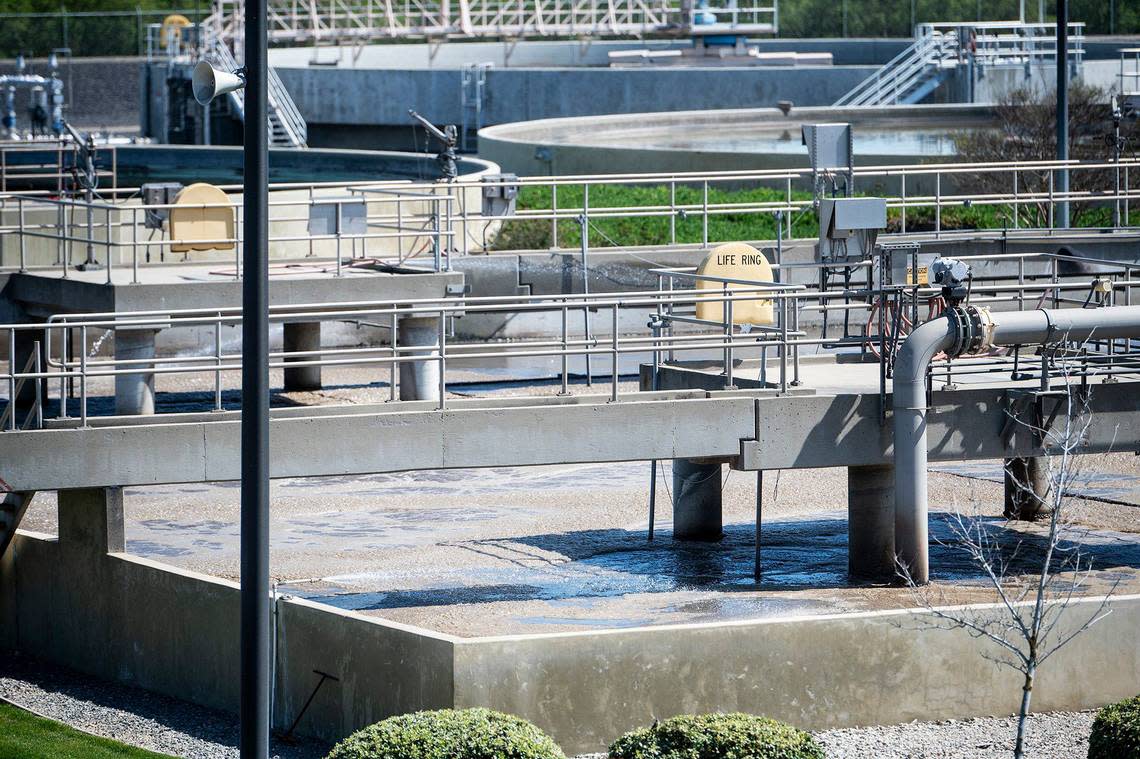
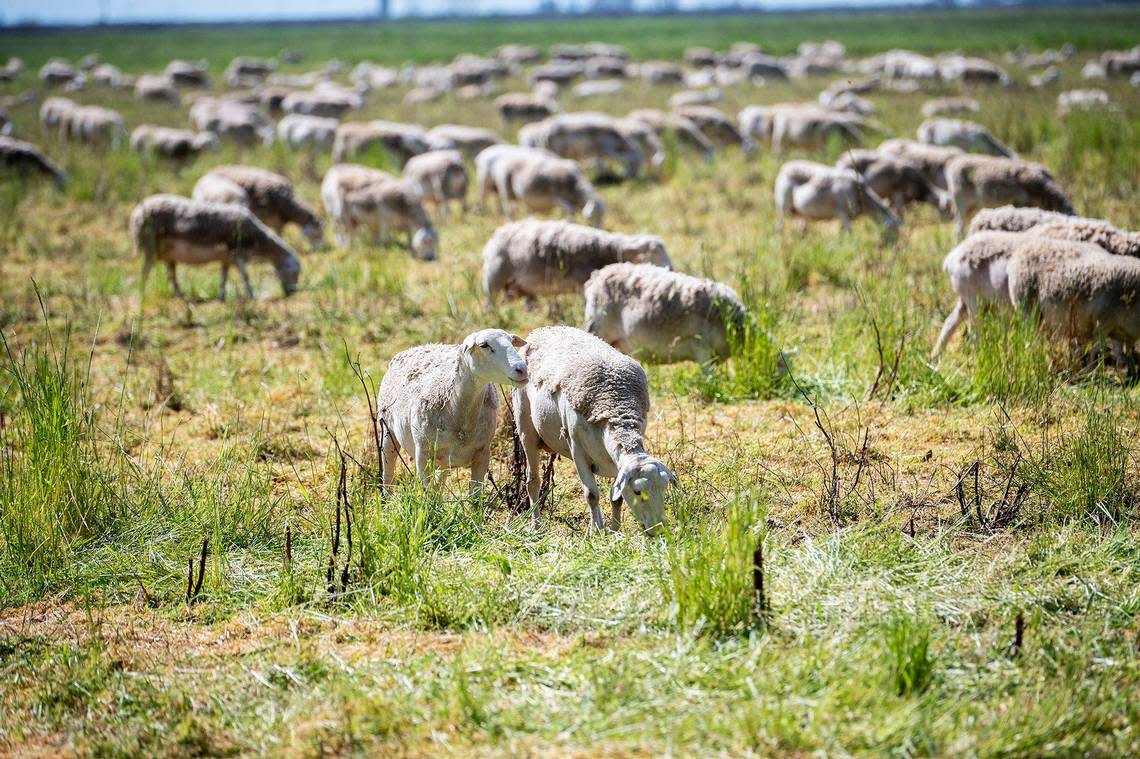
“We’ve been slowly building this facility out, said Slagter. “We’ve added irrigation, we’ve bought equipment and so now it’s a full-fledged farm.”
According to Slagter, Merced recycles more than 1.5 billion gallons of wastewater between the land management area and a wildlife area which serves as a habitat for various animal species, recharging the aquifer. Feed product generated from the fields is sold to local farmers.
